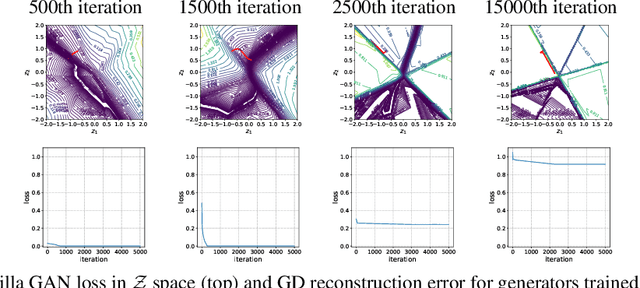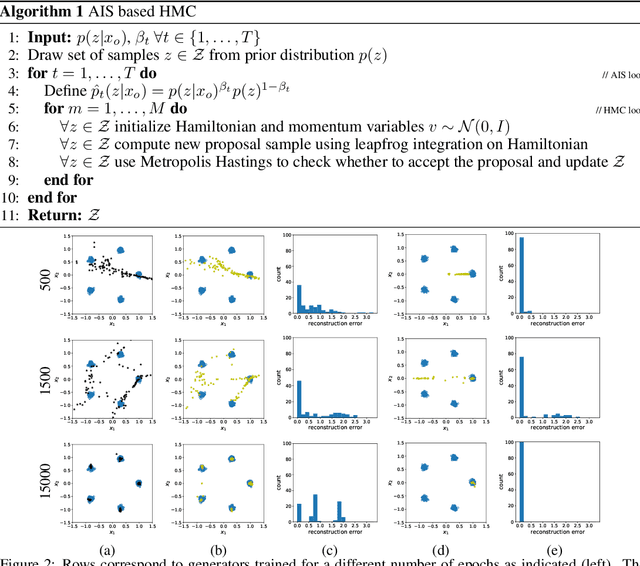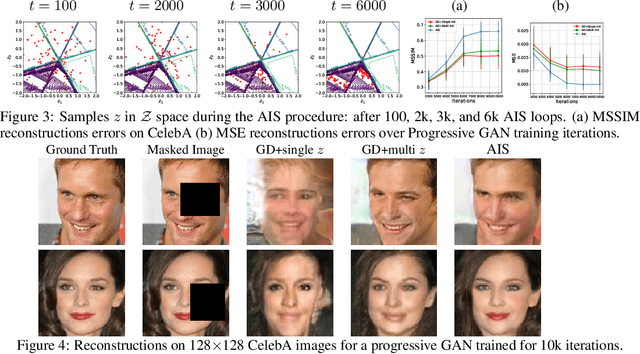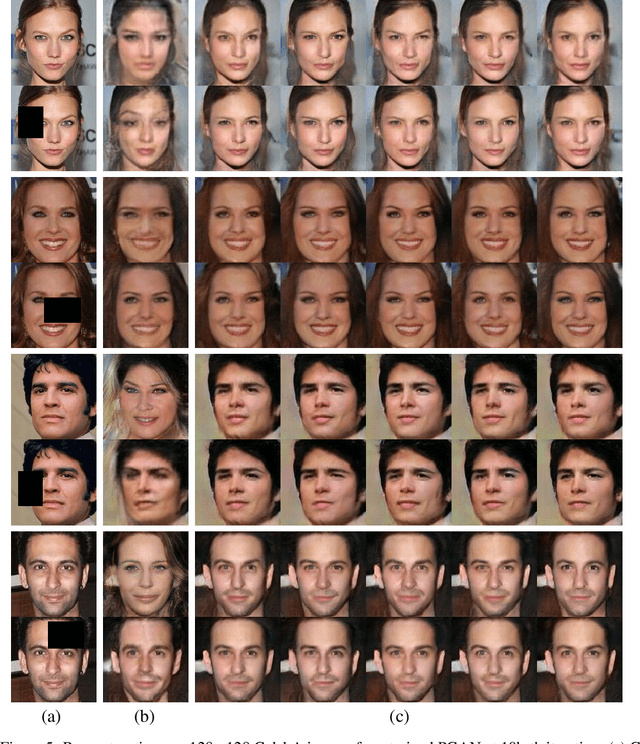Co-Generation with GANs using AIS based HMC
Paper and Code
Oct 31, 2019



Inferring the most likely configuration for a subset of variables of a joint distribution given the remaining ones - which we refer to as co-generation - is an important challenge that is computationally demanding for all but the simplest settings. This task has received a considerable amount of attention, particularly for classical ways of modeling distributions like structured prediction. In contrast, almost nothing is known about this task when considering recently proposed techniques for modeling high-dimensional distributions, particularly generative adversarial nets (GANs). Therefore, in this paper, we study the occurring challenges for co-generation with GANs. To address those challenges we develop an annealed importance sampling based Hamiltonian Monte Carlo co-generation algorithm. The presented approach significantly outperforms classical gradient based methods on a synthetic and on the CelebA and LSUN datasets.
 Add to Chrome
Add to Chrome Add to Firefox
Add to Firefox Add to Edge
Add to Edge